Yemen’s humanitarian crisis set to deepen during Ramadan, as Red Sea tensions grow
Yemen’s humanitarian crisis is set to deepen during Ramadan, as Paddy Dowling reports


Your support helps us to tell the story
This election is still a dead heat, according to most polls. In a fight with such wafer-thin margins, we need reporters on the ground talking to the people Trump and Harris are courting. Your support allows us to keep sending journalists to the story.
The Independent is trusted by 27 million Americans from across the entire political spectrum every month. Unlike many other quality news outlets, we choose not to lock you out of our reporting and analysis with paywalls. But quality journalism must still be paid for.
Help us keep bring these critical stories to light. Your support makes all the difference.
With the staggering depreciation of the currency and rising food prices, aid agencies face a perfect storm to prevent further catastrophe in Yemen.
Stood at the front of the crowds who gathered to meet staff from the UN’s World Food Programme (WFP) and a needs assessment team from the Qatar Fund for Development (QFFD) who walked the thoroughfares of Hosh Derhim Camp for internally displaced people (IDPs), in Dar Sa’ad district, Mohammed shouted to be heard.
“We sleep all day so we don’t have to feel the pain of being hungry,” says Mohammed, 28, who fled the conflict in Al Hodeidah with his family to the relative safety of Aden. “In recent months we only eat one meal a day as the price of food has become completely unaffordable. We can’t even feed our children”.
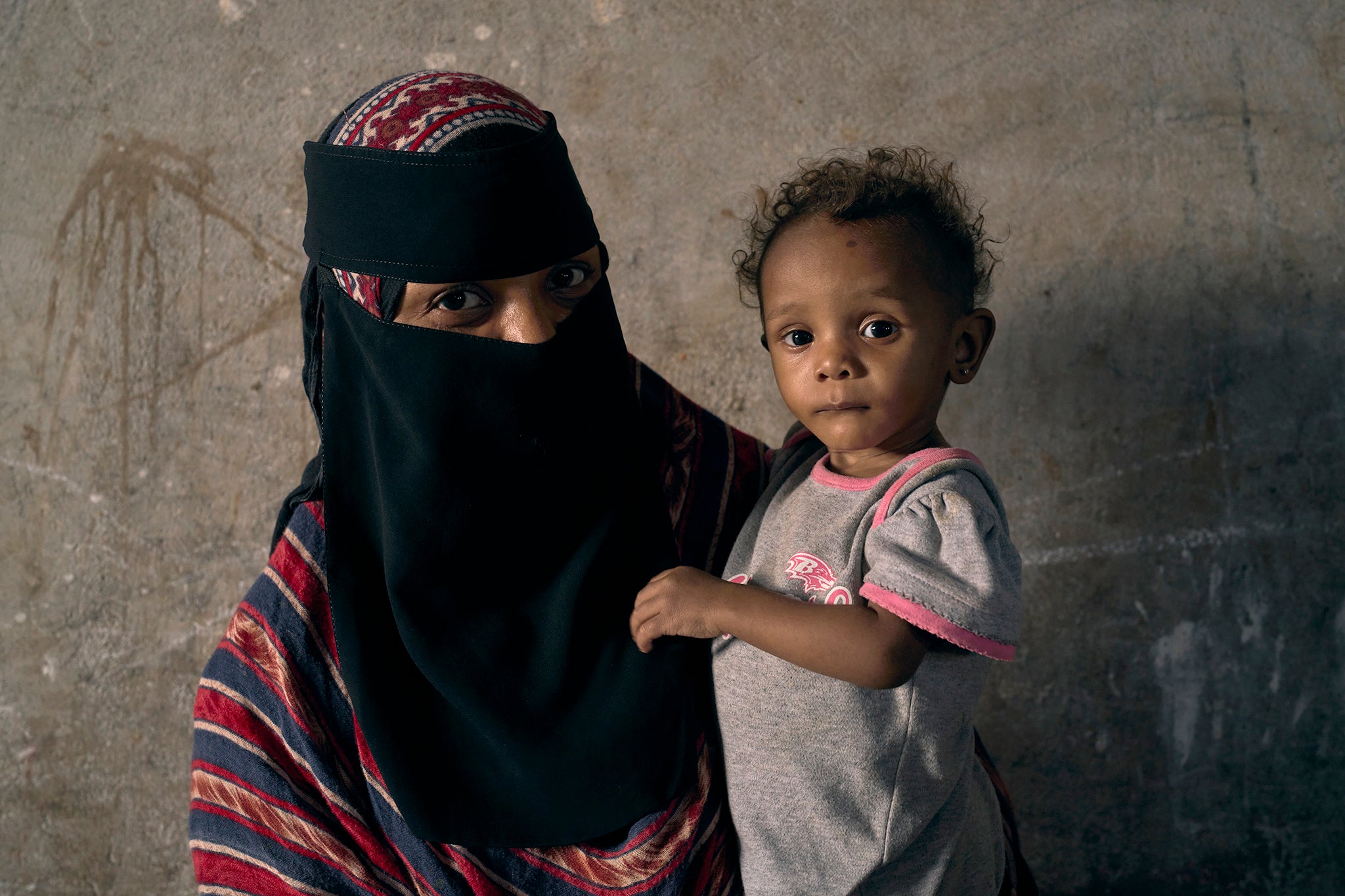
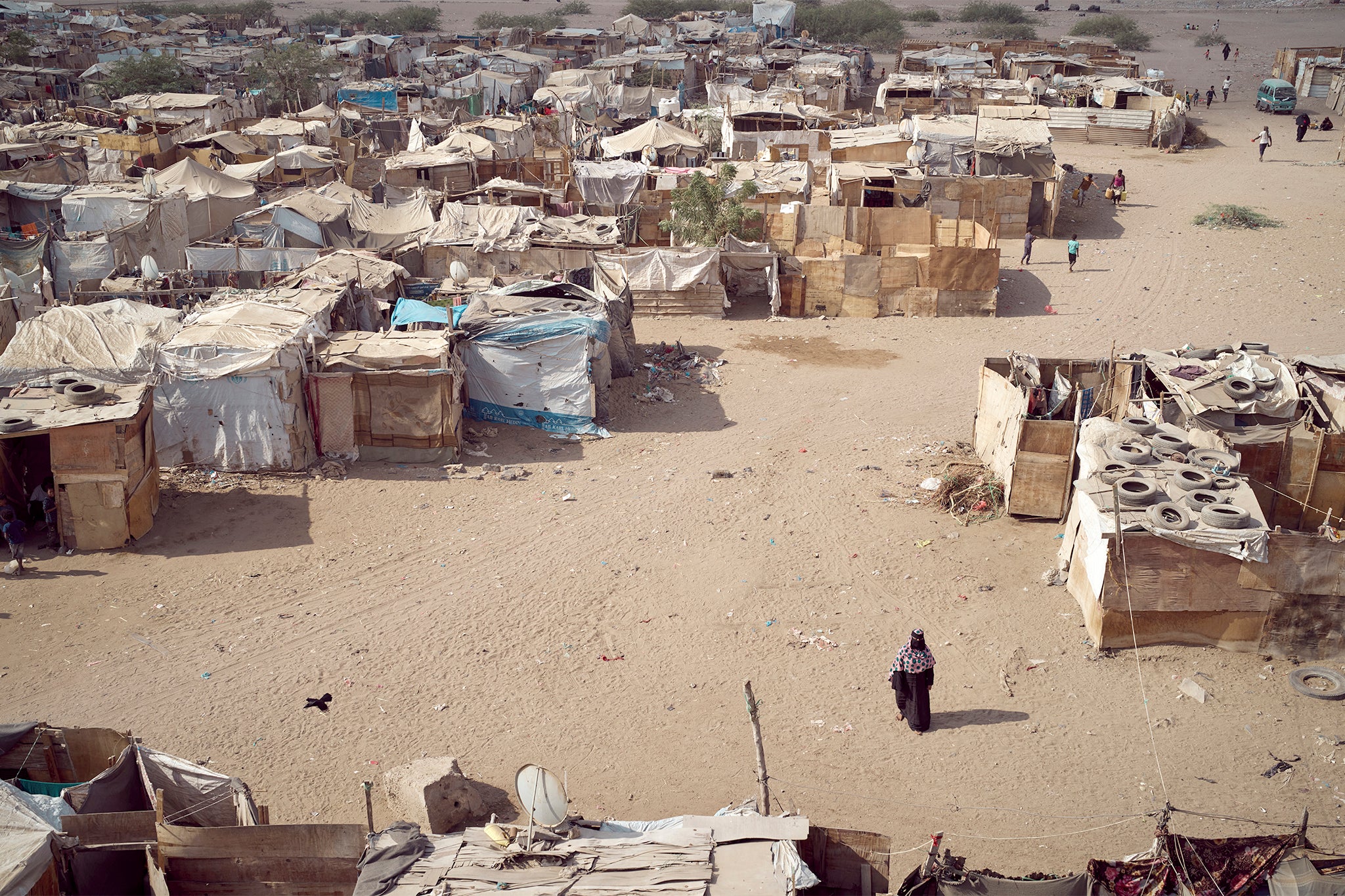
The provocations by Houthi forces in the Red Sea and Gulf of Aden against ships on one of the world’s most important sea trade routes have caused widespread disruption to global shipping, exacerbated Yemen’s crippling inflation and is compounding the challenges faced by several chronically underfunded aid agencies addressing the needs of 21.6 million people, who require urgent assistance.
Mohammed and his family are among 9.3 million people who were supported by QFFD through a pledge of $100m to WFP in Yemen in 2021, to address critical food security needs. He explains that the assistance they receive from WFP had been halved over the past two years due to lack of funding, and that in the current climate with a severely devalued currency, it was nowhere near enough.
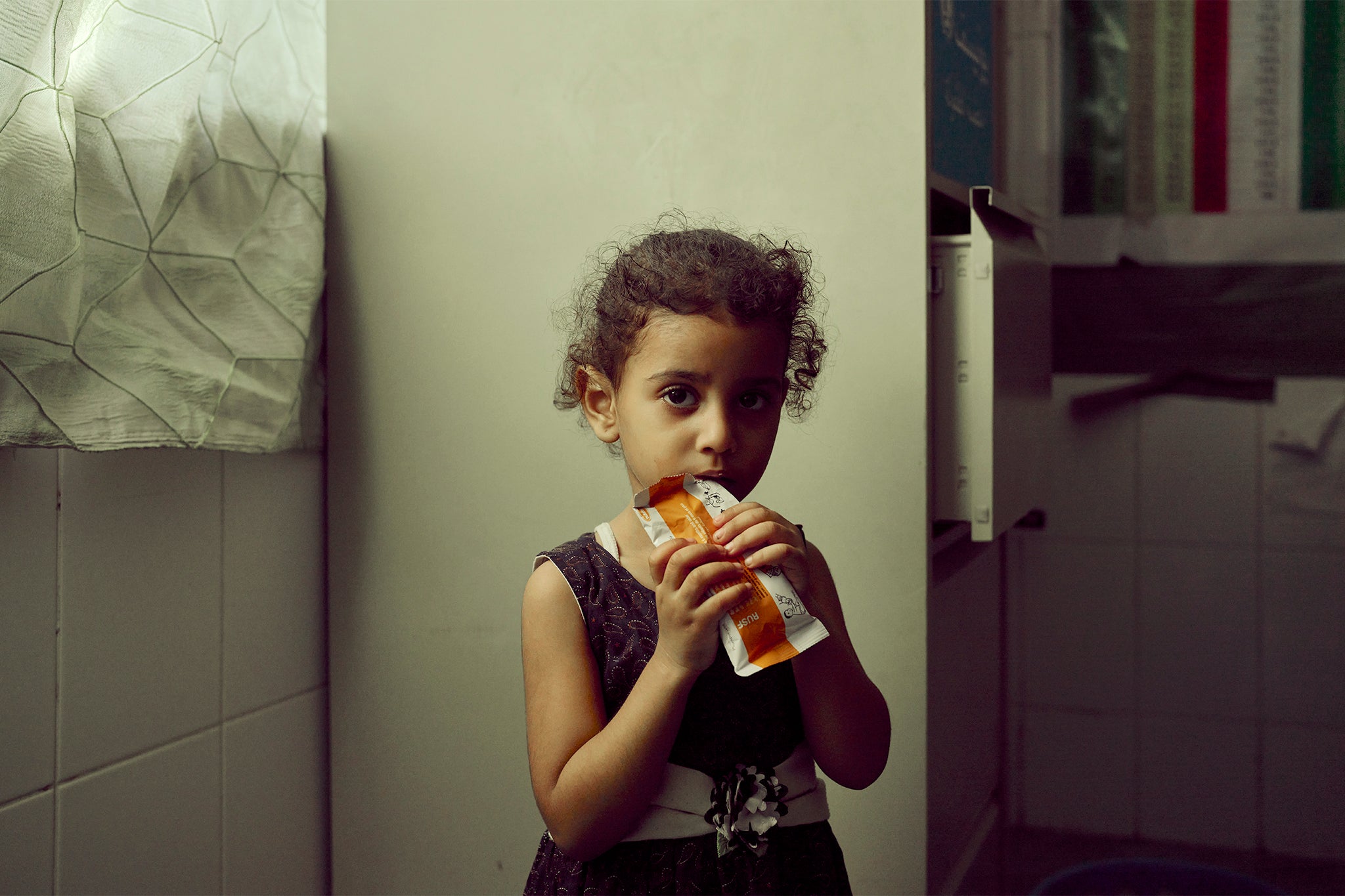
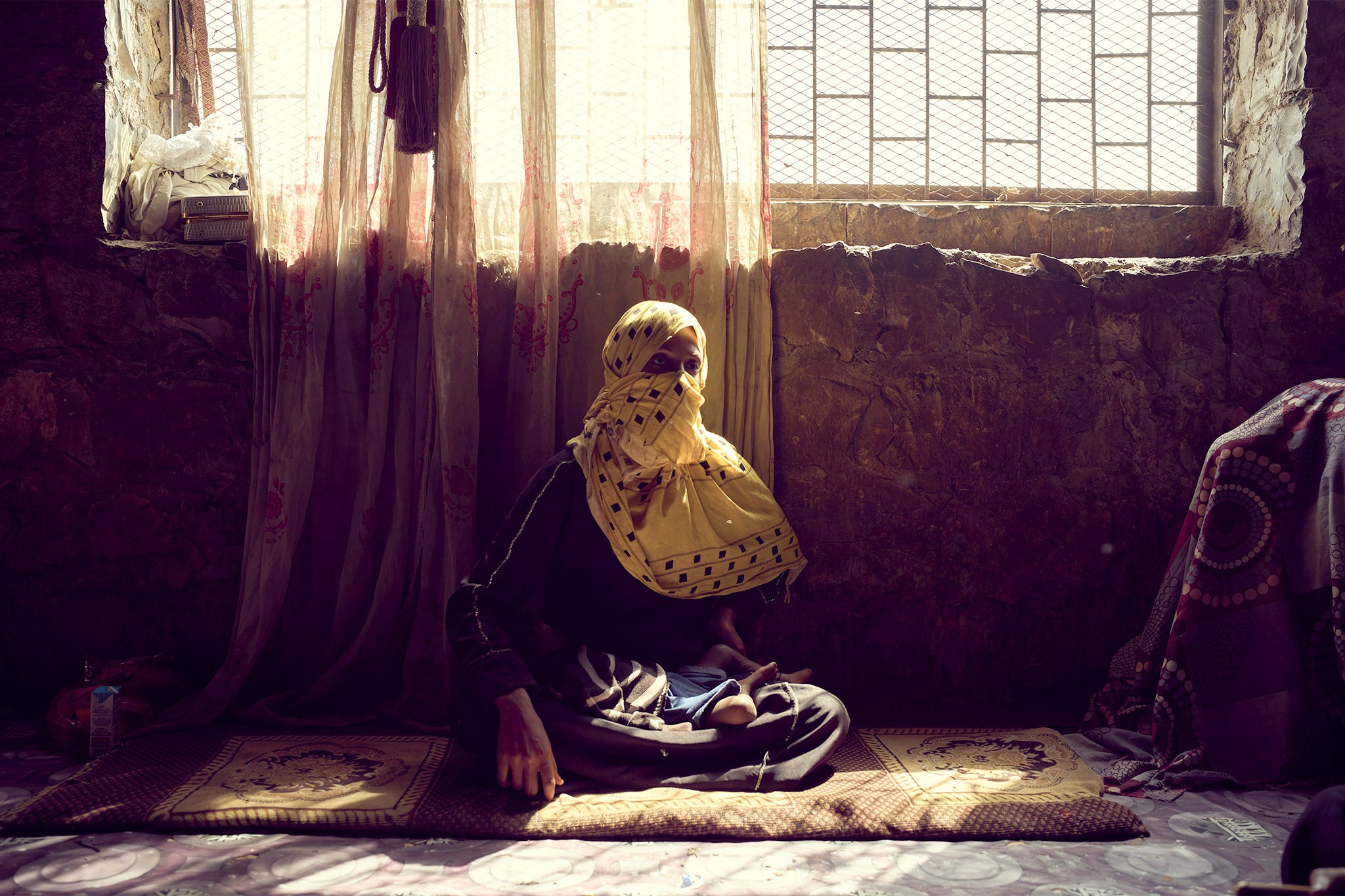
A report published by the WFP in December ceded that the current security situation has resulted in increased shipping costs to WFP (due to increased freight and insurance rates, and extra fuel costs), as well as potential delivery delays for the boats that can still access the ports.
More recently, the UNs Food and Agriculture Organisation (FAO) is projecting the current crisis to disrupt or block the movement of goods, leading to food shortages and inflated prices in the markets in March.
Today, with 17 million people in Yemen categorised as being food-insecure (3.5 million of which are acutely malnourished), the agency is just 4 per cent funded for the February – July 2024 period, a net funding requirement of $1.3bn (£1bn).

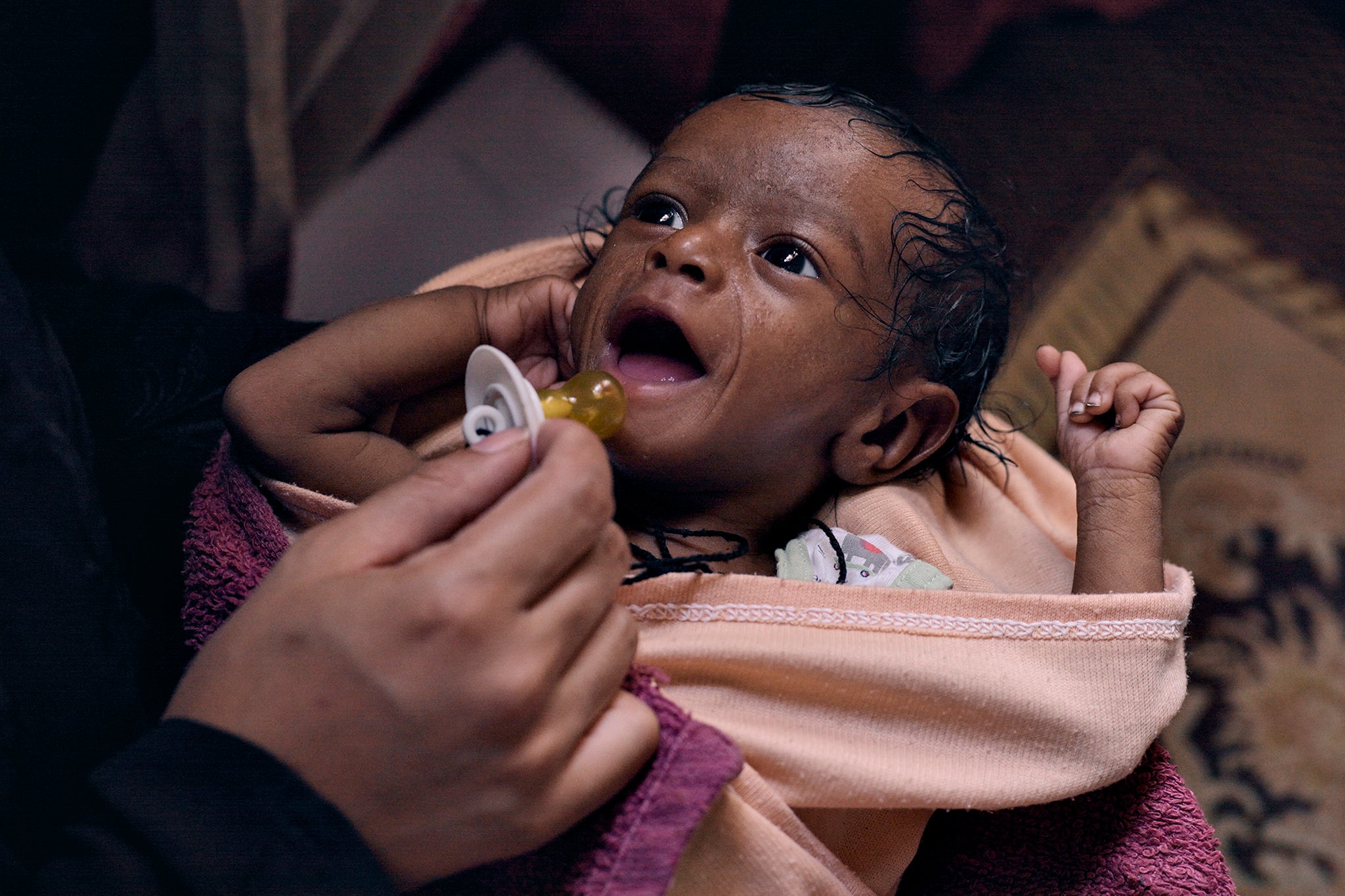
Concerns about rising food prices and the lack of funding were shared by the parents who queued patiently in the unlit corridors of a medical centre in Dar Sa’ad, waiting for their children to be seen by the team of nurses at the malnutrition clinic, one of many run by the WFP in Yemen.
Jasmin Lavoie, a spokesperson for WFP in Yemen, explains: “Since the suspension of our malnutrition prevention programme in August 2023, there has been a significant increase in the number of people needing treatment compared to 2022. The increase is directly linked to a lack of funding for the agency’s preventative measures”.
Seated in an abandoned school classroom at Ammar Bin Yasser IDP Camp, Riam aged 18 months old, has stopped eating. Weighing just 4kg, she leans against her mother, Eshraq, exhausted and motionless.
Riam was referred by the team at the malnutrition centre at Dar Sa’ad to the Al-Sadaqa hospital in Aden 10 months ago, where she received life-saving treatment.
“We simply cannot afford [the treatment] ourselves,” explains Eshraq, 22. “We have already lost one daughter to malnutrition and we are terrified to lose another”.
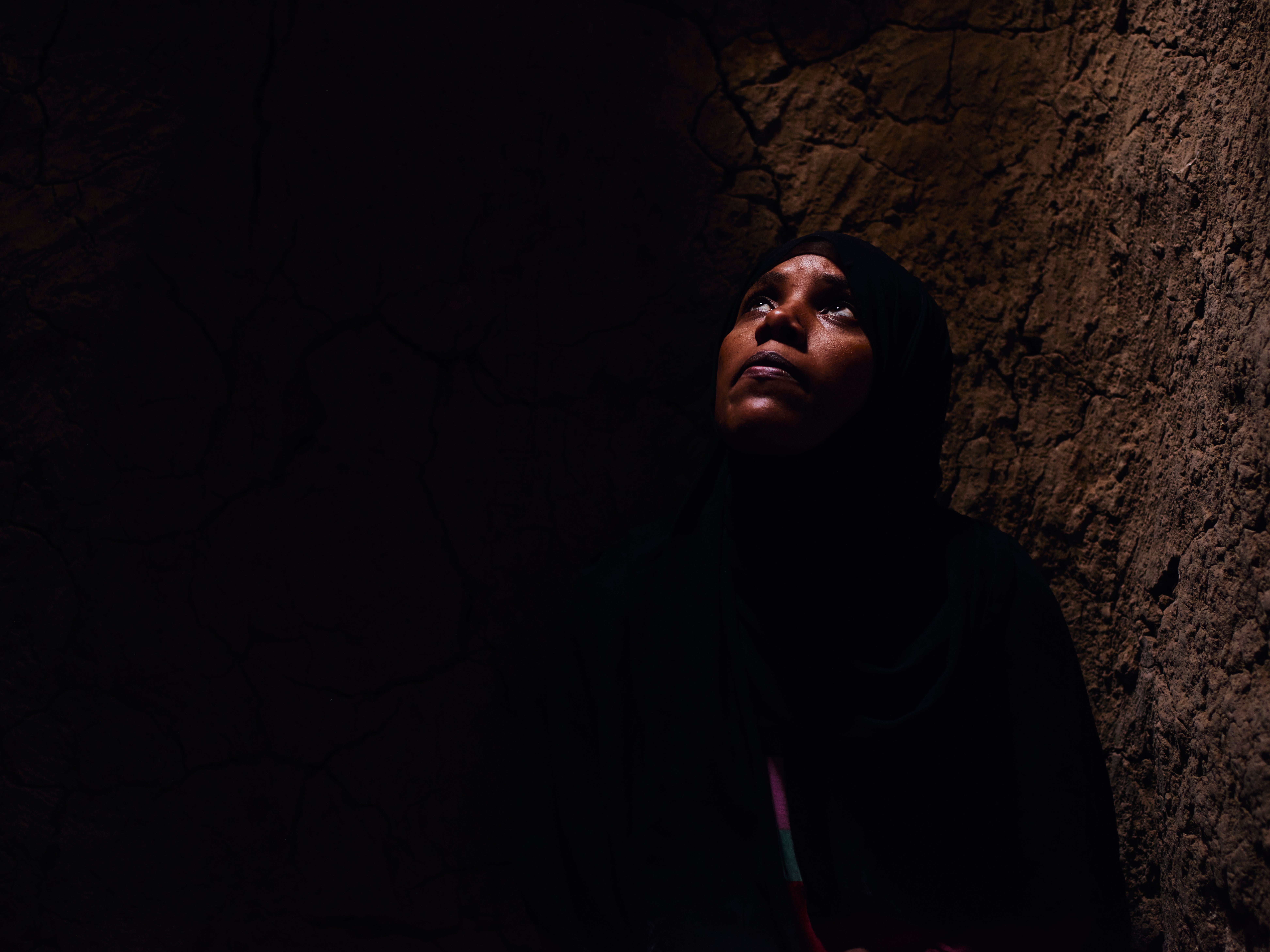
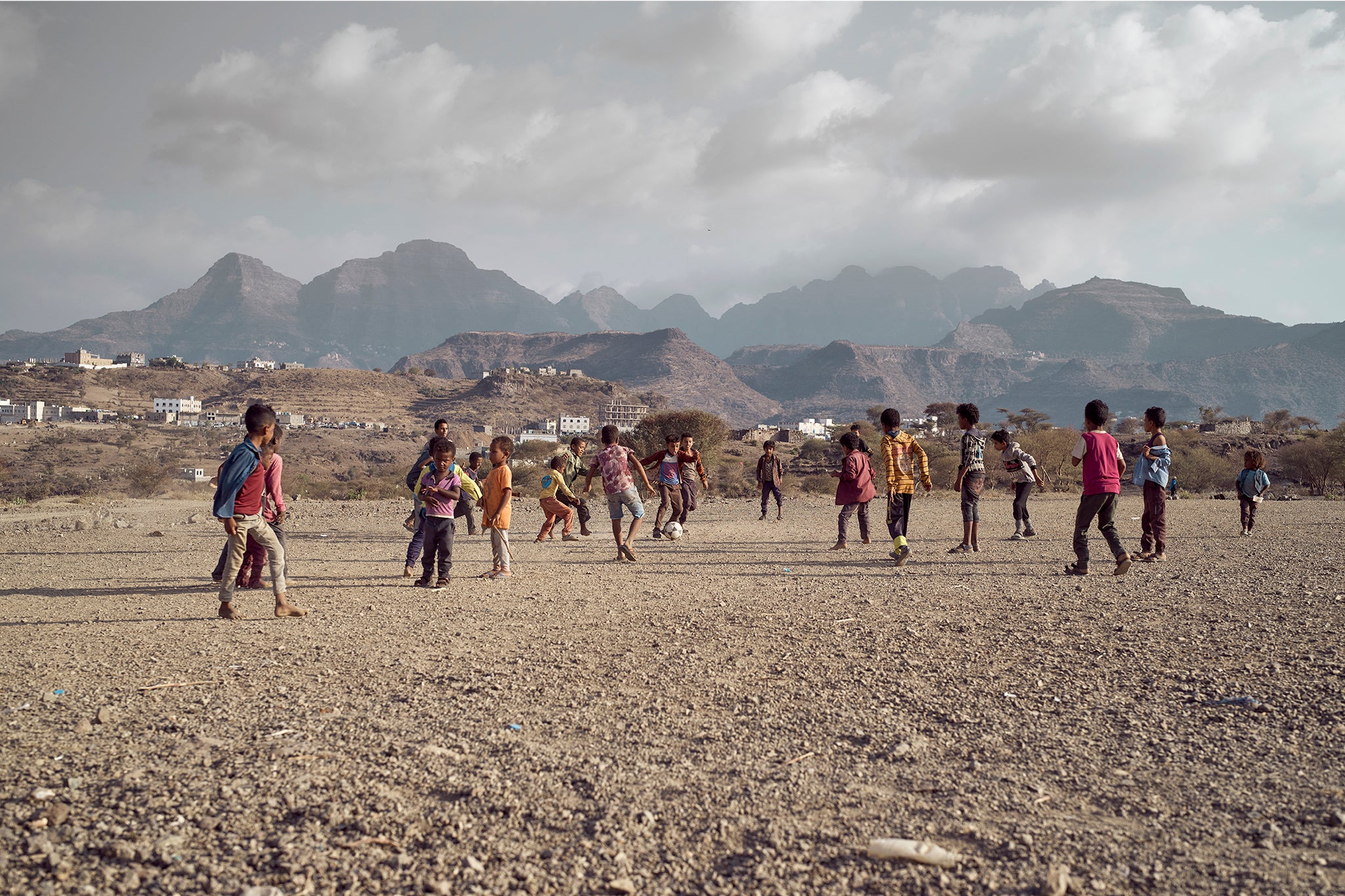
The family displaced from Mocha, explained how several charities were no longer taking registrations. According to Riam’s father, Abdullah, 27, The WFPs cash assistance, the equivalent of £11.50, the family receives every two months, equates to just five pence per person, per day.
“The humanitarian crisis in Yemen remains heartbreaking”, says Khalifa Jassim Al Kuwari, director general of QFFD. “The people of Yemen deserve a future which enshrines their most basic rights. However, their country desperately needs peace and stability to create sustainable change.”
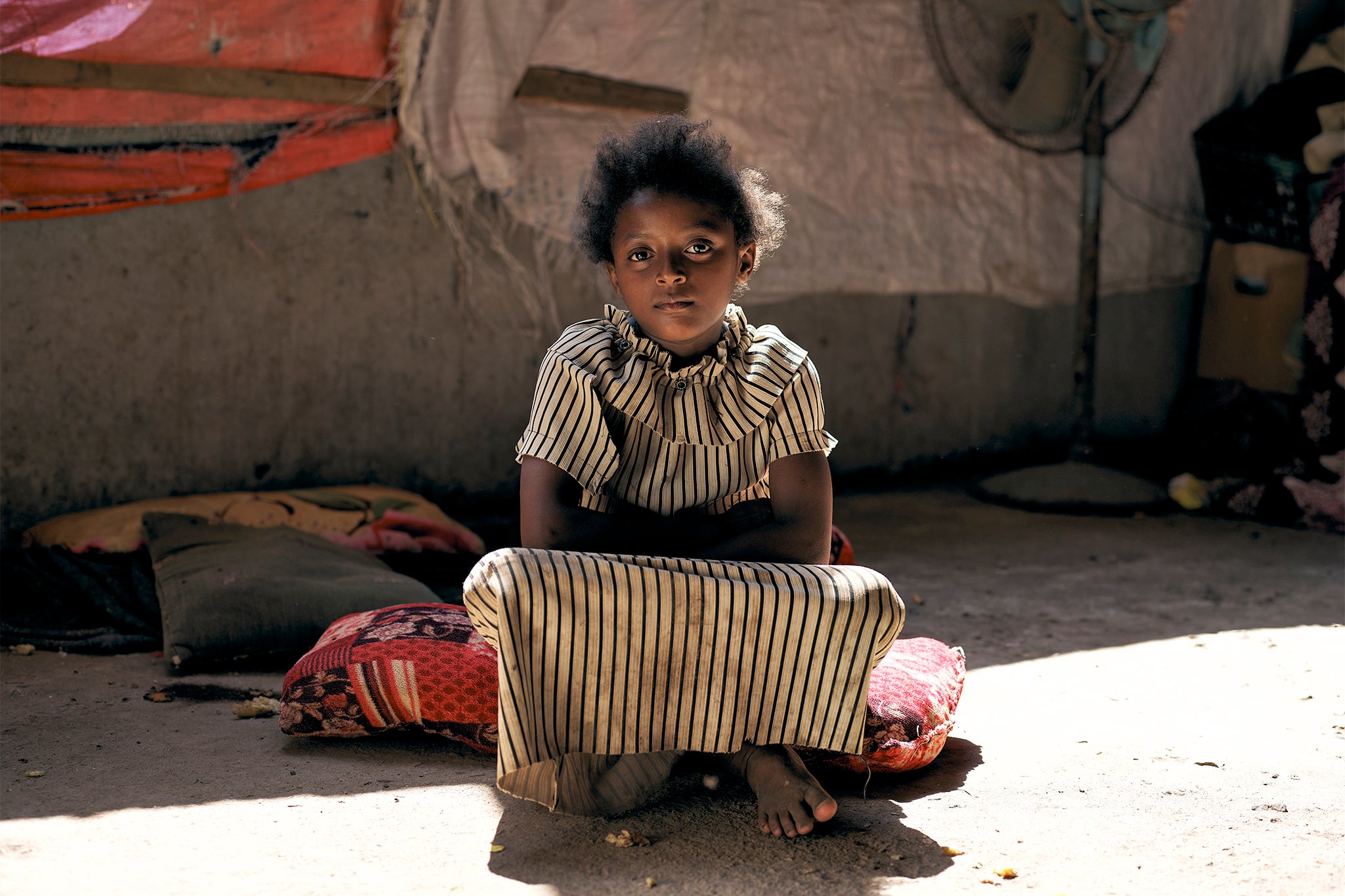
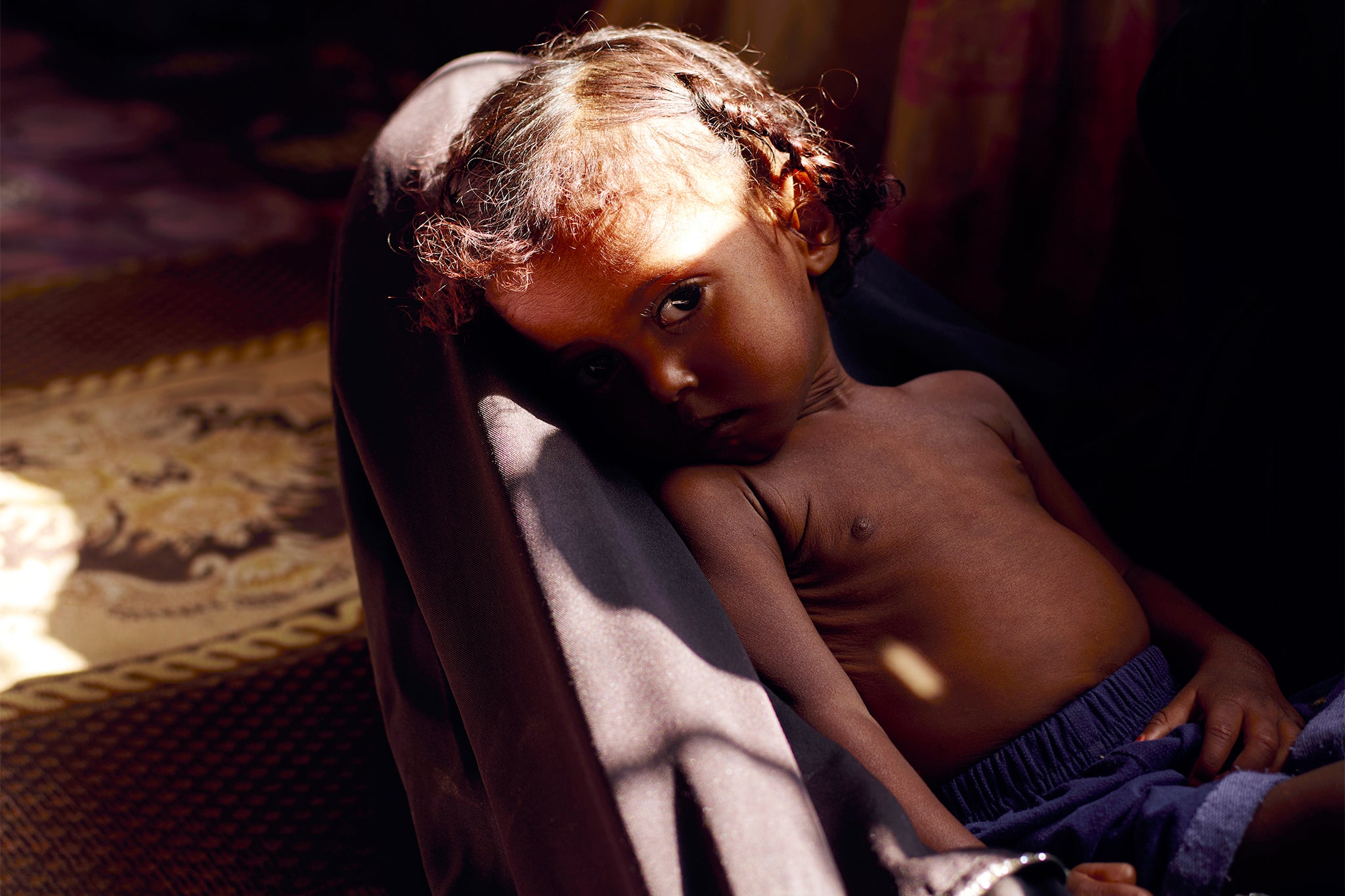
The Fund has reached millions in need of food assistance through the World Food Programme, and we are in the midst of delivering WASH projects with UNICEF to ensure Yemenis have access to sufficient and safe drinking water and functioning sanitation services. Yemen, often referred to as the forgotten conflict, is very much not being overlooked by us and the Fund is constantly evaluating what further interventions are required.”
“Almost 90 percent of Yemen’s food is imported, so when regional tensions increase, so does the price of shipping insurances. This increases the cost of transport and that inevitably gets passed on to the consumer” explained Abdulrab Al Khulaqui, Deputy Executive Chairman at YGAPC.
The port of Aden operated by Yemen Gulf of Aden Ports Corporation (YGAPC) which played a crucial role in facilitating humanitarian efforts by serving as the main entry point for cargo, including fuel, food, and construction materials, has experienced a steady decline in vessels offloading or break-bulking their cargo over the years, especially since the reopening of Al Hodeidah port.
Al Khulaqui said “There are even threats from the north to ship captains and their crews not to offload any cargo in Aden, those vessels that do, risk being attacked. In addition, Sana’a based authorities levy such exorbitant taxes on goods transported by road from Aden to the north, which for the importer then becomes financially unviable. So a majority of cargo bypasses Aden.
If the provocations in the Red Sea continue, not only will this translate directly to higher prices for goods arriving in Yemen. The escalations are compounding nearly a decade of hardship endured through an intractable civil war and is directing Yemen’s fragile economy towards another shock, which its population living by the finest margins, simply cannot absorb.
Join our commenting forum
Join thought-provoking conversations, follow other Independent readers and see their replies
Comments